- S.D. Eibar ready for maiden La Liga outing
- SD Eibar stengthen ahead of debut La Liga season
- Can ‘Super Mario’ live up to expectations in Madrid?
- MAN IN THE GROUND – Brentford 0 – 4 Osasuna
- Historic Basque derby welcomes S.D. Eibar to La Liga
- Munich to Madrid, via Brazil – Tony Kroos
- Rakitic in Spanish Switch
- Can Spain find redemption in Rio?
- Viva Espana! A season of redemption for Spanish football
- From the old to the new: who can fill the void in years to come for La Roja?
When Real Madrid almost joined the Catalan football league
- By Colin Jones
- Updated: 14 March, 2012
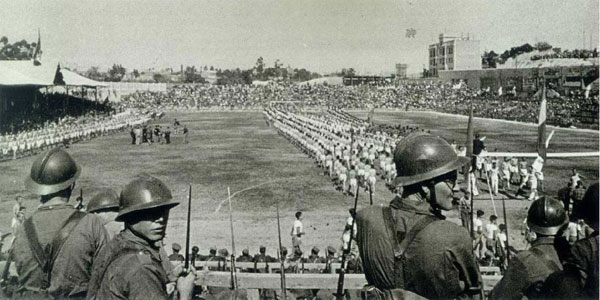
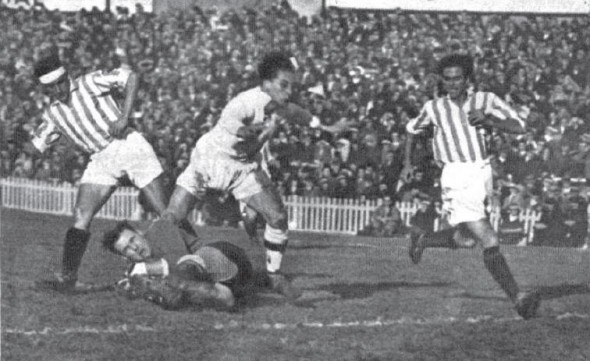 Mundo Gráfico
Mundo Gráfico
The year is 1936 and Spain is experiencing the beginning of a savage, fratricidal conflict. A civil war that would tear the country apart – fought between supporters of the incumbent democratic republican government and those that wanted to overthrow it and return Spain to it’s more traditional ‘right-wing values’ of monarchy, military and catholicism.
As in any conflict, normal everyday activities are almost impossible to carry-out and football was one of the first casualties. The national championship was suspended, due to the danger of teams travelling to different areas of Spain, controlled by differing armed factions. Clubs attempted to keep on going by participating in regional leagues in areas such as Catalunya and Valencia, where the conflict had not yet reached the chaos and carnage that it had caused in Southern Spain and in the capital Madrid.
At the outbreak of the war, Real Madrid were one of the clubs most affected by the conflict and were unable to take part in any competition. One of Madrid’s directors at this time Pablo Hernandez Coronado had an idea. To keep the club alive and to keep the players active, he would ask the Catalan Football Federation if Real Madrid could participate as guests in their regional league, which was due to commence on 4 October 1936.
Coronado despatched the then Madrid coach Paco Bru (who was both a Catalan and well respected in Catalan footballing circles) to try and negotiate the club’s entrance into the Campeonato Catalan. The presence of Bru in Catalan territory and his proposal that Madrid join the Catalan Championship was well received by virtually all the Catalan clubs including Español, C.D Sabadell and FC Badalona.
Español’s directors went even further and offered Madrid the use of their ground to train in and football kit should they need it. The association of professional footballers of Catalunya also gave the idea their blessing for two reasons, to show solidarity with the Madrid players in difficult times and because they believed by having Madrid in the championship, it would generate more interest and bring more spectators through the turnstiles, thus making more money and allowing the players to continue getting paid.
In the midst of all this optimism, Paco Bru rented a large house in the Catalan costal town of Masnou where the Madrid players could stay during their participation in the championship. On 20 October, Ramon Eroles, the president of the Catalan Football Federation called a meeting between directors of all the Catalan clubs to finalise a deal. All of the clubs were in agreement that Madrid should be allowed to join the championship, but unfortunately for Real Madrid, there was one notable exception.
Rosendo Calvet a representative of FC Barcelona, said that his club opposed Madrid’s participation, as it would cause smaller second-division clubs in Catalunya to suffer, for example a loss of gate-money. Calvet wouldn’t listen to those who argued why allowing Madrid to join the championship was the right thing to do. During the meeting, Eroles excused himself and said he had to take a telephone call.
When he returned he explained that he had received an important notification from an unknown source. The source had claimed that a document was on it’s way to the Catalan Federation, signed by all of he 2nd Division clubs opposing Madrid’s participation. The meeting was immediately suspended awaiting the arrival of the said document.
The document never arrived and those at the meeting suspected it was a ploy deviously conjured up by Calvet and his associates to delay the signing of the agreement. Seven days later, Eroles on behalf of the Catalan Football Federation, issued an official press release, opposing Real Madrid’s participation in the Catalan Championship, because it would damage the smaller Catalan clubs.
The saga did not end here, as after the press-release the smaller Catalan clubs of the 2nd Division themselves released a unified statement, saying they were never against Madrid’s participation and that the Catalan Federation had never even asked for their opinion on the matter. To many observers, it seemed that Eroles was in the pocket of Rosendo Calvet and his FC Barcelona associates and that they had conspired to deny Madrid’s participation.
Paco Bru, who himself had played for FC Barcelona between 1906 and 1916, felt badly let down by a club that he still had tremendous affection for and returned disillusioned to Madrid to break the bad news. Real Madrid had no option at this point, other than to allow all of their players to leave, in order to find opportunities to play football in other clubs, until the civil conflict had ended.
A long time has passed since 1936 – During this time many books have been written on the history of FC Barcelona – Unfortunately very few of them have been honest enough to tell this undignified story. One can only conclude that It’s a part of their history they wish to forget.
Follow @icentrocampista
Related Posts
4 Comments
You must be logged in to post a comment Login

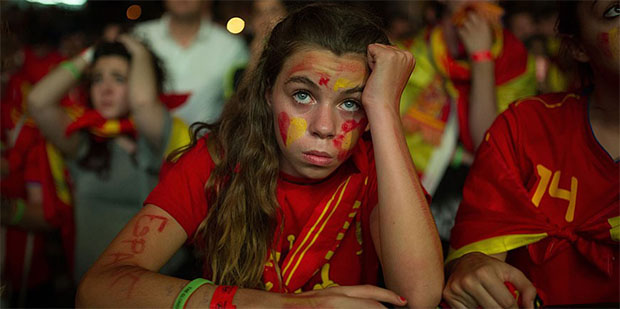
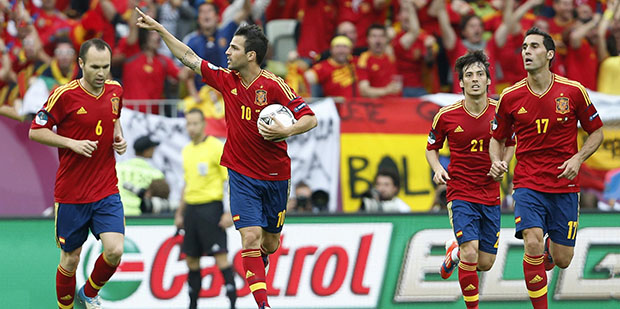
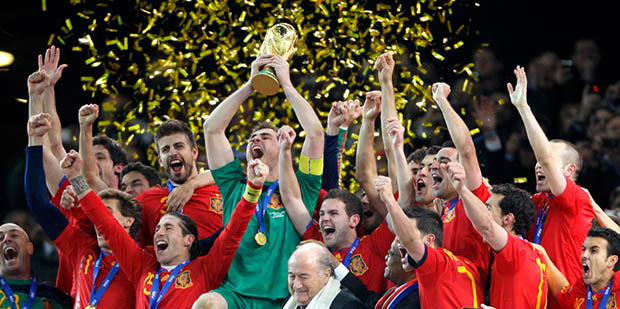


Pingback: Catalonia is not Spain! – Nationalism, separatism and the greatest rivalry in … « Sports Greatest Rivalries
Pingback: “Madrid”in az qala Kataloniya Futbol Federasiyasına qoşulmağına dair tarix « ☭ Action Meinhof ★